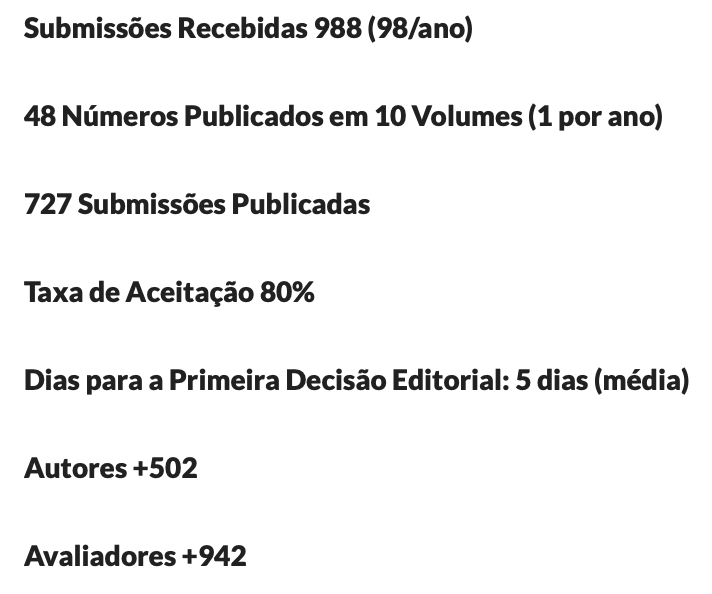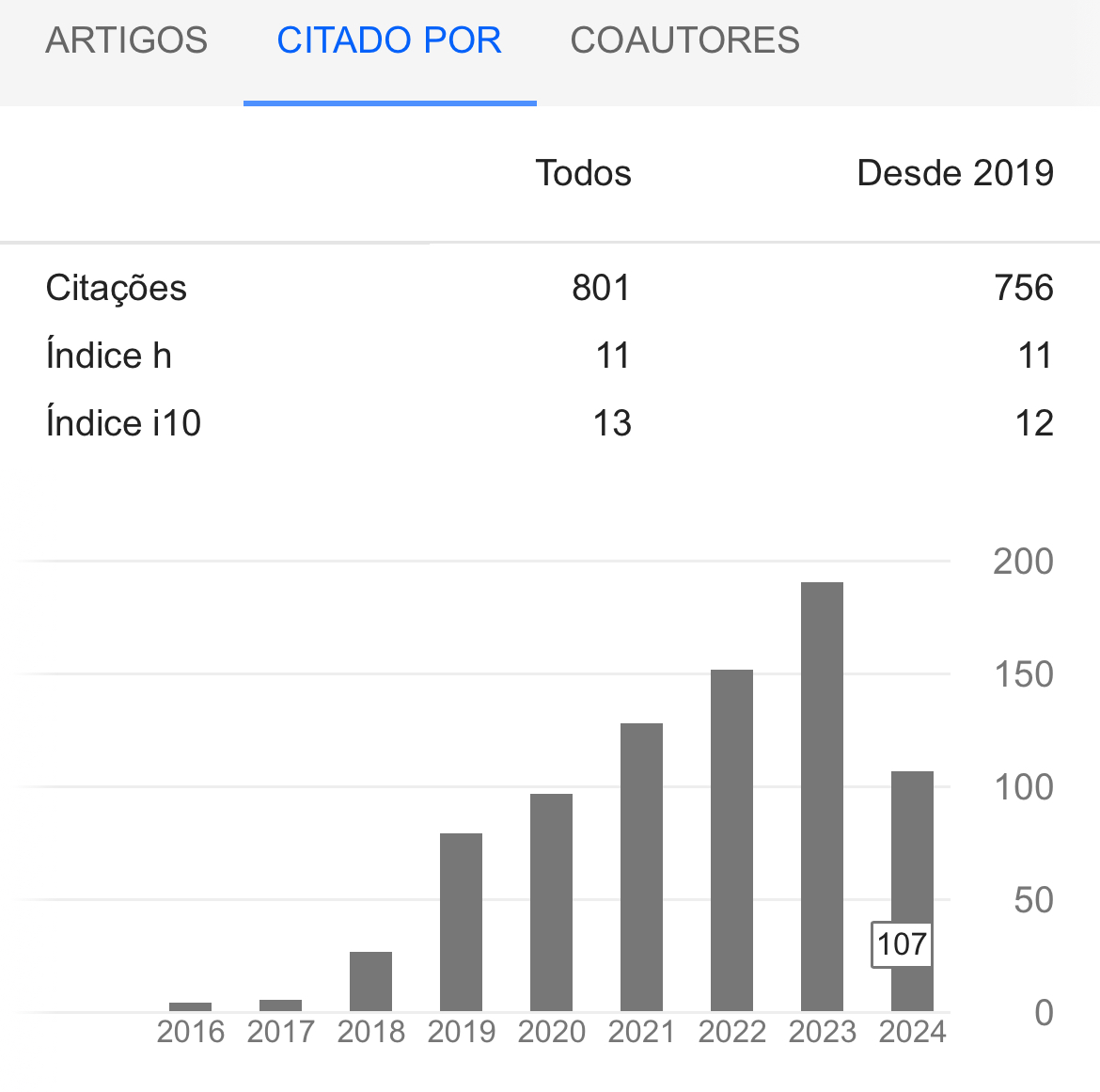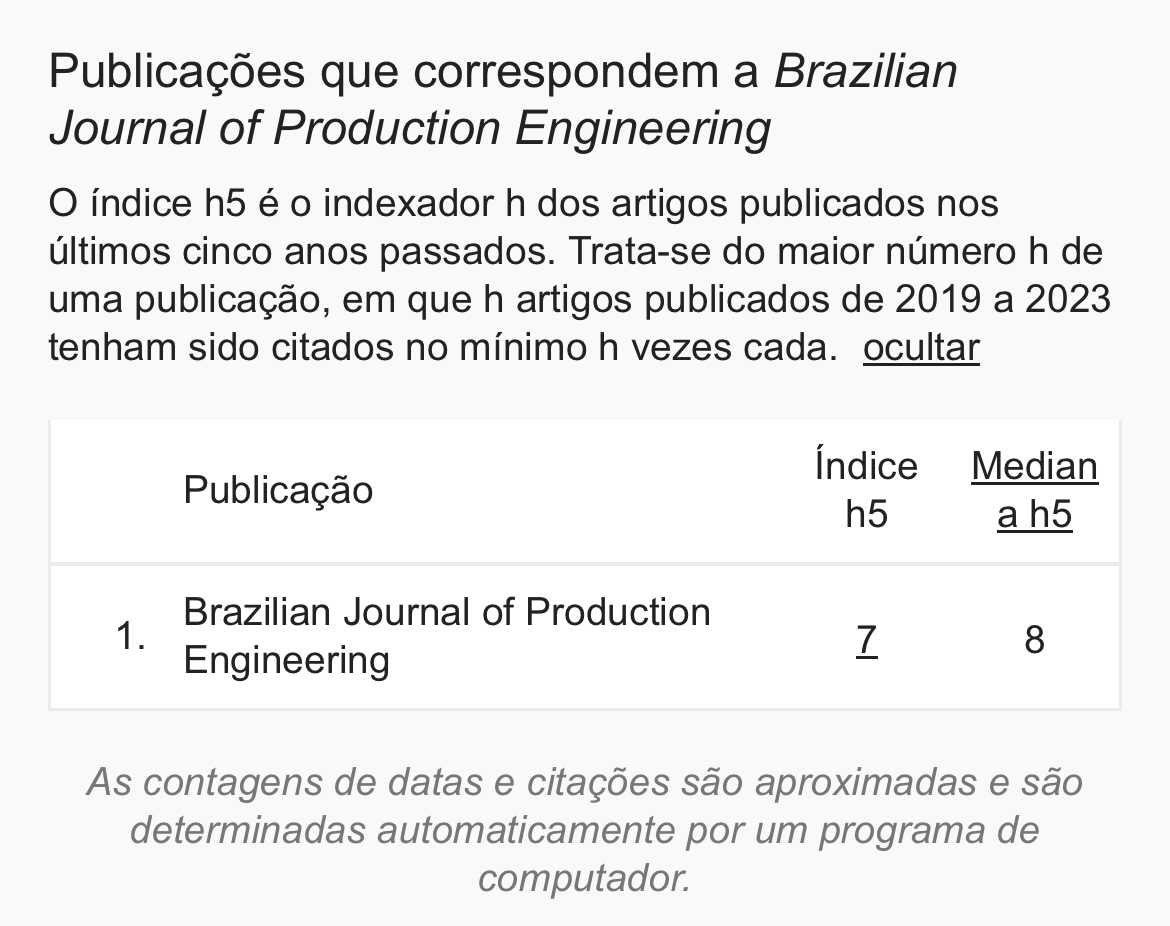Business intelligence as a support for decision making: the state of the art through ProKnow-C
DOI:
https://doi.org/10.47456/bjpe.v8i2.37106Keywords:
Business intelligence, Decision making, strategy, Proknow-CAbstract
Society has never ceased to be affected by transformations driven by revolutions over time, and the way data is handled in organizations is part of these transformations, reflecting directly on the assertiveness of the decisions taken. From this angle, this article will address the state of the art on business intelligence (BI) methodology in decision making. The general objective comprises elucidating the relevance of implementing BI as a foundation in strategic decision making. To achieve the objective, a bibliographic research will be carried out, applying the method of formation of the bibliographic portfolio and bibliometric analysis, Proknow-C. The search resulted in 3646 articles. It was evident that organizations must evaluate the most appropriate system for their information needs, respecting the budget stipulated within the project validation stage, since the high cost, in addition to the complexity of the systems, are factors that hinder the implementation. Competitive success is linked to the decision environment in which the user is inserted. The more complex the environment and the more variables that affect the individual, the greater the difficulty in accessing the ideal information for decision making. In short, the research achieved its objective of elucidating the impacts of BI on companies as a provider of strategic handling of information based on metrics related to strategic planning to aid in decision making.
Downloads
References
Abusweilem, M. A. & Abualoush, S. (2019). The impact of knowledge management process and business intelligence on organizational performance. Growing Science, 2143-2156. http://doi.org/10.5267/j.msl.2019.6.020.
Affeldt, F. S. & Junior, S. D. da S., Jr. (2013). Information architecture analysis using business intelligence tools based on the information needs of executives. JISTEM – Journal of Information Systems and Technology Management, 10(2), 251-270. https://doi.org/10.4301/S1807-17752013000200004.
Afonso, M. H. F., Souza, J. V. de, Ensslin, S. R., & Ensslin, L. (2011). Como construir conhecimento sobre o tema de pesquisa? aplicação do processo proknow-c na busca de literatura sobre avaliação do desenvolvimento sustentável. Revista de Gestão Social e Ambiental, 5(2), 47-62. https://doi.org/10.24857/rgsa.v5i2.424.
Agiu, D., Mateescu, V., & Muntean, I. (2014). Business intelligence overview. Database system Journal, 5(3), 23-36. Recuperado de http://dbjournal.ro/archive/17/17_3.pdf
Alasiri, M. M. & Salameh, A. A. (2020). The impact of business intelligence (BI) and decision support systems (DSS): exploratory study, International Journal of Management (IJM), 11(5), 1001-1016. https://doi.org/ 10.34218/IJM.11.5.2020.092
Armstrong, P. (Ed), (2019). Dominando as tecnologias disruptivas: aprenda a compreender, avaliar e tomar melhores decisões que possa impactar o seu negócio (1a ed. p. 19-20). São Paulo: Autêntica Business.
Awasthi, A. M. & Pandita, D. (2019). Role of business intelligence and analytics: analysis of data driven decision. International Journal of Innovate Technology and Exploring Engineering (IJITEE), 8(12), 1506-1510. https://doi.org/10.35940/ijitee.l3101.1081219.
Boyton, J., Ayscough, P., Kaveri, D., & Chiong, R. (2015). Suboptimal business intelligence implementations: understanding and addressing the problems. Journal of Systems and Information Technology, 17(3), 307-320. https://doi.org/10.1108/JSIT-03-2015-0023.
Delen, D., Turban, E., & Sharda, R. (Ed). (2015). Business intelligence and analytics: systems for decision support (10th ed). Oklahoma: Pearson.
Ensslin, L., Graziano, L. A. G., Dutra, A., & Dezem, V. (2017). Construção de conhecimento sobre o tema avaliação de desempenho da comunicação em órgãos públicos: uma análise da literatura internacional. Revista Ibero-Americana de Estrategia – RIAE, 16(3), 111-129. https://doi.org/10.5585/riae.v16i3.2519.
Ensslin, S. R.; Ensslin, L., Yamakawa, E. K., Nagaoka, M. da P. T., Aoki, A. R., & Siebert, L. C. (2014). Processo estruturado de revisão da literatura e análise bibliométrica sobre avaliação de desempenho de processos de implementação de eficiência energética. Revista Brasileira de Energia, 20(1), 21-50. Recuperado de https://sbpe.org.br/index.php/rbe/article/view/319.
Fontana, L. P. B. (2020). Modelo multicritério construtivista para apoiar a gestão organizacional em uma empresa concessionária de serviços de saneamento no Brasil. (Dissertação de mestrado). Universidade do Sul de Santa Catarina, Florianópolis, Santa Catarina, Brasil.
Godínez, J. A. B., Coloapa, J. L. S., Márquez, M. S. U., Mejía, A. G., & Gonzaga, E. A. (2020). Identifying the main factors involved in business intelligence implementation in SMEs. Bulletin of Electrical Engineering and Informaties. 9(1), 304-310. https://doi.org/10.11591/eei.v9i1.1459.
Grubljesic, T. & Jaklic, J. (2015). Conceptualization of the business intelligence extended use model. Journal of Computer Information Systems, 55(3), 72-82. https://doi.org/10.1080/08874417.2015.11645774.
Isik, O., Jones, M. C., & Sidorova, A. (2013). Business intelligence success: the roles of BI capabilities and decision environments. Information & Management, 50(1), 13-23. https://doi.org/10.1016/j.im.2012.12.001.
Lacerda, R. T. de O., Ensslin, L., & Ensslin, S. R. (2012). Uma análise bibliométrica da literatura sobre estratégia e avaliação de desempenho. Gestão & Produção, 19(1), 59-78. https://doi.org/10.1590/S0104-530X2012000100005.
Lizot, M. Junior, P. P. de A., Magacho, C. S., Bortoluzzi, S. C., & Viero, A. (2016). Avaliação de desempenho na gestão da produção: análise bibliométrica e sistêmica da literatura internacional. Revistas Gestão Industrial. 12(3), 65-84. https://doi.org/10.3895/gi.v12n3.4377.
Nedelcu, B. (2013), Business intelligence systems. Database system Journal, 4(4), 12-20. Recuperado de http://www.dbjournal.ro/archive/14/14.pdf#page=13
Olexová, C. (2014). Business intelligence adoption: a case study in the retail chain. WSEAS Transactions on Business and Economics, 11(1), 95-106. Recuperado de http://www.wseas.us/journal/pdf/economics/2014/a185707-163.
Olszak, C. M. & Ziemba, E. (2012). Critical sucess factors for implementing business intelligence systems in small and medium enterprises on the example of upper Silesia, Poland. Interdisciplinary Journal of Information, Knowledge, and Management, 7, 130-150. https://doi.org/10.28945 / 1584.
Popovic, A., Hackney, R., Coelho, P. S., & Jaklic, J. (2012). Towards business intelligence systems success: effects of maturity and culture on analytical decision making. Decision Support Systems, 54(1), 729-739. https://doi.org/10.1016/j.dss.2012.08.017.
Reina, D. R. M., Ensslin, S. R., Ensslin, L., & Reina, D. (2014). Seleção e análise do perfil da produção científica sobre o tema seleção de projetos. REGE, 21(1), 3-25. https://doi.org/10.5700/rege516.
Rogers D. L. (Ed). (2017). Transformação digital: repensando o seu negócio para era digital (2nd ed. p. 121-130). São Paulo: Autêntica Business.
Santos, A. I. dos, Schenatto, F. J. A., & Oliveira, G. A. (2017). Metodologia proknow-C para construir o conhecimento acerca de previsão de demanda utilizando séries temporais. Ponta Grossa/PR. VII Congresso Brasileiro de Engenharia de Produção.
Schwab, K. (Ed). (2016). A quarta revolução industrial (1a ed. p. 23). São Paulo: Edipro.
Sharma, R. S. & Djiaw, V. (2011). Realising the strategic impact of business intelligence tools. VINE, 41(2), 113-131. https://doi.org/10.1108/03055721111134772.
Silva, L. H. B. da, Bezerra, J. C. C., Rios, F. F. S., & Amorim, F. A. (2019). Desenvolvimento de dashboards interativos utilizando ferramentas de business intelligence no ms excel para auxilio na tomada de decisão empresarial. Revista Expressão Católica, 7(1), 27-38. http://dx.doi.org/10.25190/rec.v7i1.2129.
Vaish, P., Shrivastava, S., & Sen, S. (2020). Business intelligence: escalation of data warehousing and data mining for effective decision making. International Jounal of Advanced Science and Technology, 29(5), 1377-1388. Recuperado de http://sersc.org/journals/index.php/IJAST/article/view/8178.
Vaz, C. R., Tasca, J. E., Ensslin, L., Ensslin, S. R., & Selig, P. M. (2012). Avaliação de desempenho na gestão estratégica organizacional: seleção de um referencial teórico de pesquisa e análise bibliométrica. Revista Gestão Industrial. 8(4), 121-153. https://doi.org/10.3895/S1808-04482012000400008.
Vergara, S. C. (Ed), (2016). Projetos e relatórios de pesquisa em administração (16th ed.). São Paulo: Editora Atlas.
Vieira, E. L., Bortoluzzi, S. C., Costa, S. E. G. da., & Lima, E. P. de. (2017). Processo estruturado de revisão da literatura e análise bibliométrica sobre avaliação do nível de maturidade das empresas na utilização de ferramentas lean manufacturing. Revista Latino-Americana de Inovação e Engenharia de Produção, 5(7), 64-79. http://dx.doi.org/10.5380/relainep.v5i7.55173.
Visinescu, L. L., Jones, M. C., & Sidorova, A. (2015). Improving decision quality: the role of business intelligence. Journal of Computer Information Systems, 57(1), 58-66. https://doi.org/10.1080/08874417.2016.1181494.
Yeoh, W. & Popovic, A. (2016). Extending the understanding of critical success factors for implementing business intelligence systems. Journal of the Association for Information Science and Technology, 67(1), 134-147. https://doi.org/10.1002/asi.23366.
Zanella, L. C. H. (2009). Metodologia de Estudo e Pesquisa em Administração. UFSC, Florianópolis, SC, Brasil.
Downloads
Published
How to Cite
Issue
Section
License
Copyright (c) 2022 Brazilian Journal of Production Engineering - BJPE

This work is licensed under a Creative Commons Attribution-NonCommercial-ShareAlike 4.0 International License.











































































